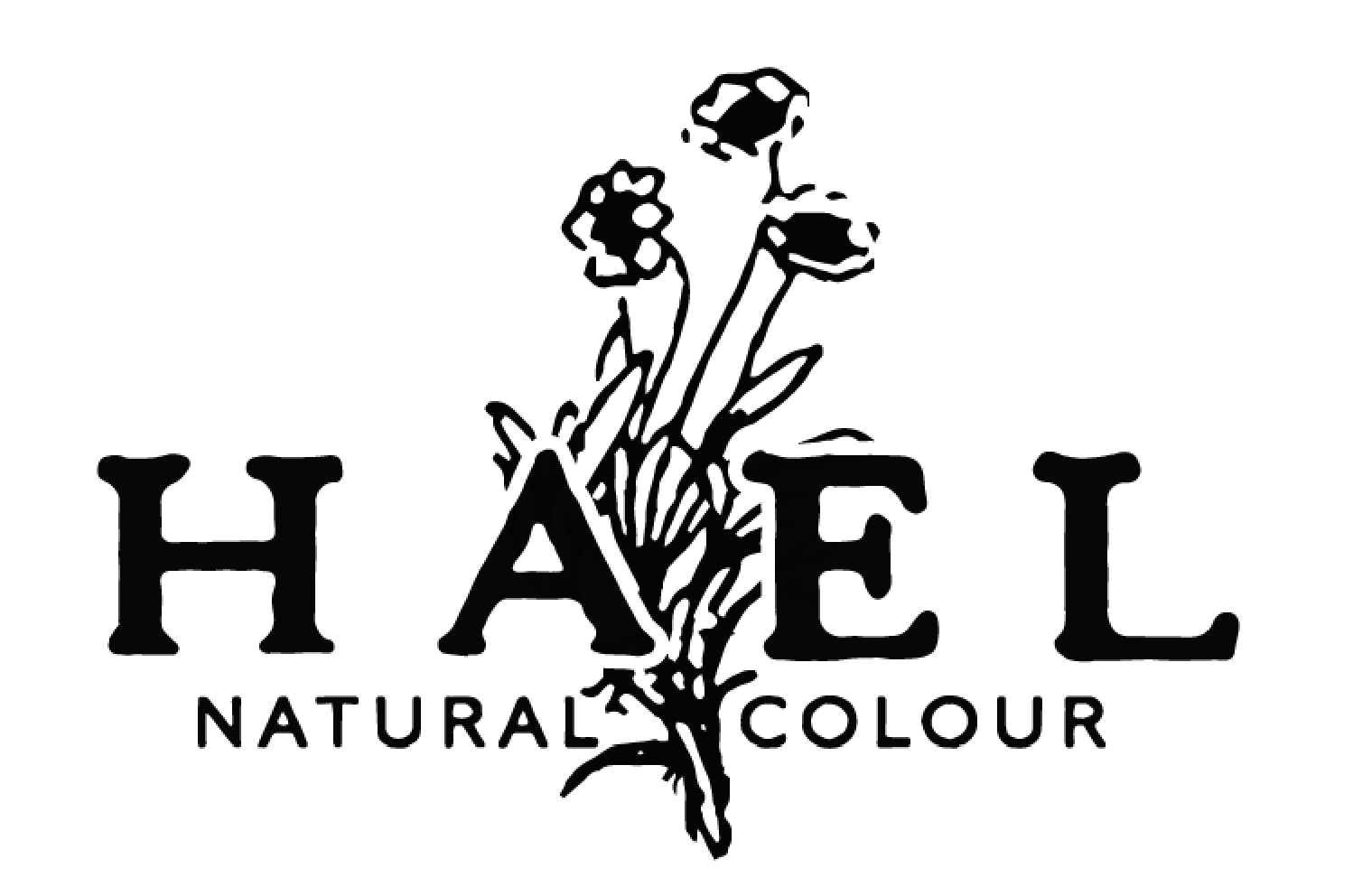About Us
Hael Natural Colour is a ten-acre organic farm and dye studio based in the rolling hills of Pembrokeshire, West Wales.
We grow annual, biennial and perennial dye plants alongside cut flowers, herbs, and seasonal vegetables — working slowly, thoughtfully, and in rhythm with the land. Born from a desire to reconnect with nature through colour, textiles and food, Hael emerged from a shared curiosity about where things come from and the environmental impact of how they’re made.
Founded in 2024 by Ffion Taverner and Rufus Biddle, Hael Natural Colour is the bridge between ecology and art. Having met at art school, Ffion continued to work as an artist, whilst Rufus leaned towards ecological ways of making, eventually recognising organic agriculture for what it is. The meeting point between humans and the natural world. The connection between agriculture and natural colour was only strengthened once the pair travelled through the Americas, meeting and learning with dyers, weavers and farmers.
Natural colour has shaped cultures for thousands of years — woven into textiles, rituals, medicines, and identities. But with the arrival of synthetic dyes and industrial food systems, we’ve lost much of the generational knowledge that once connected us deeply to our landscape.
At Hael, we are working to reawaken that connection. By growing, using, and sharing natural colour, we hope to inspire a return to slower, more sustainable ways of making and living — grounded in place, season, and soil.
Flowers, plants, roots, barks, insects, minerals and the earth beneath our feet.
It’s all colour.
What We Offer
Through our work, we share this journey in many ways:
A working farm: Supplying organic produce, dye plants and cut flowers.
Studio: Where we process, dye and dry our dye plants.
Online shop: Enabling others to experience slow, natural colour from home.
Education & outreach: Connecting with schools, artists, and communities through workshops.
Commissions: We are open for collaborations between small brands, artists and communities.
We are also committed to exploring what it means to farm dye plants at scale — creating models for regenerative colour production that can support both people and planet.


